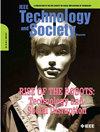Human Centricity in the Relationship Between Explainability and Trust in AI
IF 2.1
4区 工程技术
Q3 ENGINEERING, ELECTRICAL & ELECTRONIC
引用次数: 0
Abstract
Artificial Intelligence (AI) is now applied in various contexts, from casual uses like entertainment and smart homes to critical decisions such as determining medical priorities, drug recommendations, humanitarian aid planning, satellite schedules, privacy, and detecting malicious software. There has been significant research into the societal impacts of algorithmic decision-making. For instance, studies on consumer preferences in user-centered explainable AI (XAI) found that AI is becoming an integral part of our daily experiences, with its influence expected to surge人工智能中可解释性与信任关系中的人类中心论
人工智能(AI)目前已应用于各种场合,从娱乐和智能家居等休闲用途,到确定医疗优先事项、药物推荐、人道主义援助规划、卫星时间表、隐私和检测恶意软件等关键决策。人们对算法决策的社会影响进行了大量研究。例如,以用户为中心的可解释人工智能(XAI)消费者偏好研究发现,人工智能正在成为我们日常体验中不可或缺的一部分,其影响力预计将激增[1]。研究人员还揭示了基于算法的保释决策中的种族偏见,探究了人工智能驱动的招聘系统中存在偏见的可能性,并检测了在线广告中的性别偏见[2]。
本文章由计算机程序翻译,如有差异,请以英文原文为准。
求助全文
约1分钟内获得全文
求助全文
来源期刊

IEEE Technology and Society Magazine
工程技术-工程:电子与电气
CiteScore
3.00
自引率
13.60%
发文量
72
审稿时长
>12 weeks
期刊介绍:
IEEE Technology and Society Magazine invites feature articles (refereed), special articles, and commentaries on topics within the scope of the IEEE Society on Social Implications of Technology, in the broad areas of social implications of electrotechnology, history of electrotechnology, and engineering ethics.
 求助内容:
求助内容: 应助结果提醒方式:
应助结果提醒方式:


